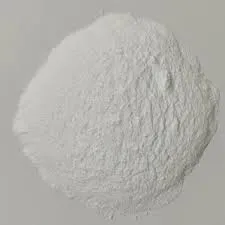Cooling Water Treatment Chemicals Importance and Applications
Cooling water systems are essential components in various industrial processes, including power generation, manufacturing, and HVAC systems. These systems utilize large quantities of water to absorb excess heat, ensuring optimal operational efficiency. However, the water used in cooling systems can quickly become contaminated with minerals, algae, bacteria, and scale-forming substances. This is where cooling water treatment chemicals come into play, playing a crucial role in maintaining system performance and longevity.
Cooling water treatment chemicals are tailored to address specific challenges that arise in cooling systems. Common issues include scaling, corrosion, biological growth, and fouling. To mitigate these problems, a combination of different chemical additives is often used.
1. Scale Inhibitors One of the primary concerns in cooling water systems is the formation of scale caused by dissolved minerals, such as calcium and magnesium. Scale inhibitors, often phosphonates or polymers, effectively reduce the precipitation of these minerals on heat exchangers and pipes, thus enhancing heat transfer efficiency and reducing maintenance costs.
cooling water treatment chemicals

2. Corrosion Inhibitors Metal components in cooling systems are susceptible to corrosion, which can lead to leaks and system failures. Corrosion inhibitors like azoles and nitrites form a protective film on metal surfaces, preventing oxidation and extending the lifespan of equipment.
3. Biocides Biological growth, such as algae and bacteria, can significantly affect the performance of cooling water systems, leading to fouling and even health issues. Biocides, including bromine and chlorine-based compounds, are used to control microbial growth and maintain water quality. Choosing the right biocide is essential to ensure effective treatment while minimizing environmental impact.
4. pH Adjusters and Antifouling Agents Maintaining an optimal pH level is critical for the effectiveness of other treatment chemicals. pH adjusters, such as sodium hydroxide or sulfuric acid, are used to control acidity or alkalinity. Additionally, antifouling agents can prevent the buildup of deposits and biofilms, ensuring smooth water flow and optimal heat exchange.
Conclusion The use of cooling water treatment chemicals is vital for optimizing the performance and reliability of cooling systems. By effectively managing scale, corrosion, and biological growth, these chemicals help prolong the life of equipment, reduce downtime, and enhance operational efficiency. As industries continue to prioritize sustainability, the development of environmentally friendly treatment options is becoming increasingly important, promoting a balance between industrial performance and ecological stewardship. In the quest for efficient and sustainable cooling solutions, the role of these treatment chemicals cannot be overstated.

